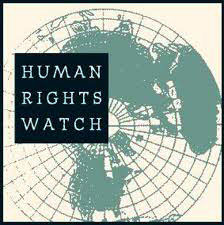
MANILA, Philippines — While it noted some “good news”, the human rights situation in the country under President Ferdinand “Bongbong” Marcos Jr. remains grim, according to a human rights watchdog.
“The human rights situation in the Philippines remains dire amid extrajudicial killings, attacks against political activists and journalists, and abuses committed during the armed conflict with the 54-year-old communist insurgency,” the Human Rights Watch (HRW) said in its World Report 2024 for the Philippines published on Thursday (Jan 11).
“There was some good news, however,” the report also stated, referring to the release of former senator Leila de Lima and acquittal of Nobel Peace Prize laureate and Rappler CEO Maria Ressa on tax evasion charges.
READ: After 6 years, De Lima free as court okays bail
The HRW also noted that the Marcos’ administration’s “measured rhetoric about human rights is a stark contrast to the unabashedly anti-rights positions of his predecessor” Rodrigo Duterte, noting that the former has repeatedly affirmed his administration’s commitment to human rights.
The HRW then called on the Marcos administration to act on extrajudicial killings and put an end to the practice of “red-tagging” against leftist activists and critics.
Extrajudicial killings
According to the HRW, the Marcos administration did not end Duterte’s “drug war.”
Citing the University of the Philippines Third World Studies Center, the HRW noted that, as of Nov. 15, 2023, a total of 471 people have been killed in drug-related violence under Marcos, perpetrated both by law enforcers and unidentified assailants.
It also cited the Philippine government’s refusal to cooperate with the International Criminal Court into possible crimes against humanity committed by Duterte’s war on drugs and when he was the mayor of Davao City.
The extrajudicial killings of journalists, with four being killed so far under the present administration, bringing the death toll up to 177 since 1986.
Red-tagging
Red-tagging of government critics by the government and its supporters also remains rampant, according to the report.
It cited instances when talk show hosts of the Sonshine Media Network International accused several personalities like National Union of Journalists of the Philippines and its chair, Jonathan de Santos; as well as Carol Araullo, a longtime leftist activist, of working for Maoist insurgents.
READ: Badoy, co-host sued for red-tagging on SMNI program
The report also flagged the “harsh and overbroad” Anti-Terror Act which it said targets civil society organizations, accusing them of terrorist financing.
“The Marcos administration should end the pernicious practice of ‘red-tagging’ government opponents,” said Bryony Lau, deputy Asia director at Human Rights Watch, in a statement.
“Red-tagging is a form of harassment that can lead to deadly abuses, and runs counter to Marcos’s pledge to promote human rights,” Lau added.